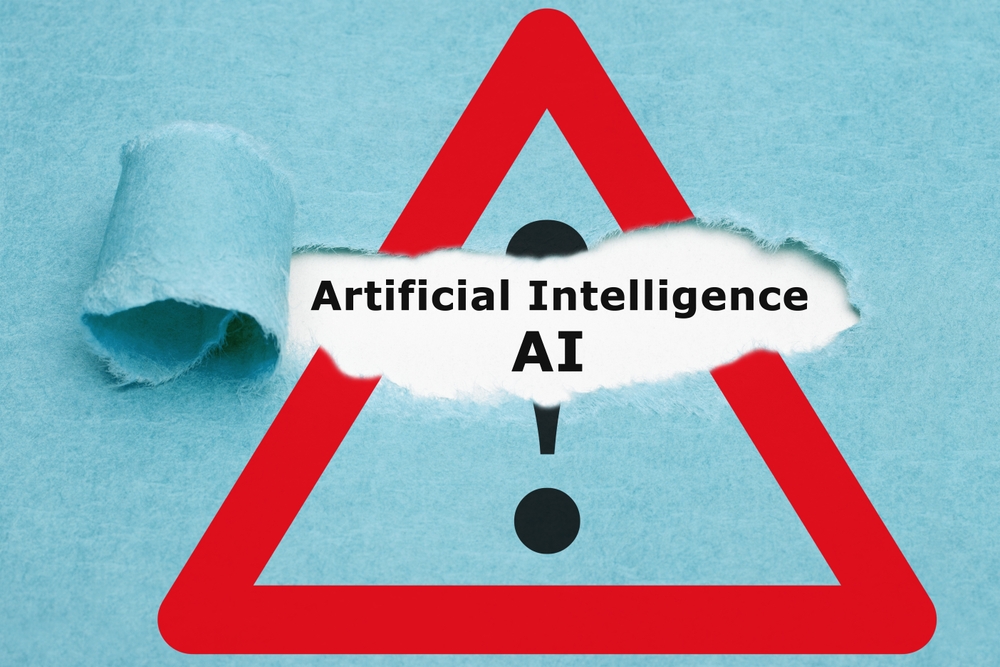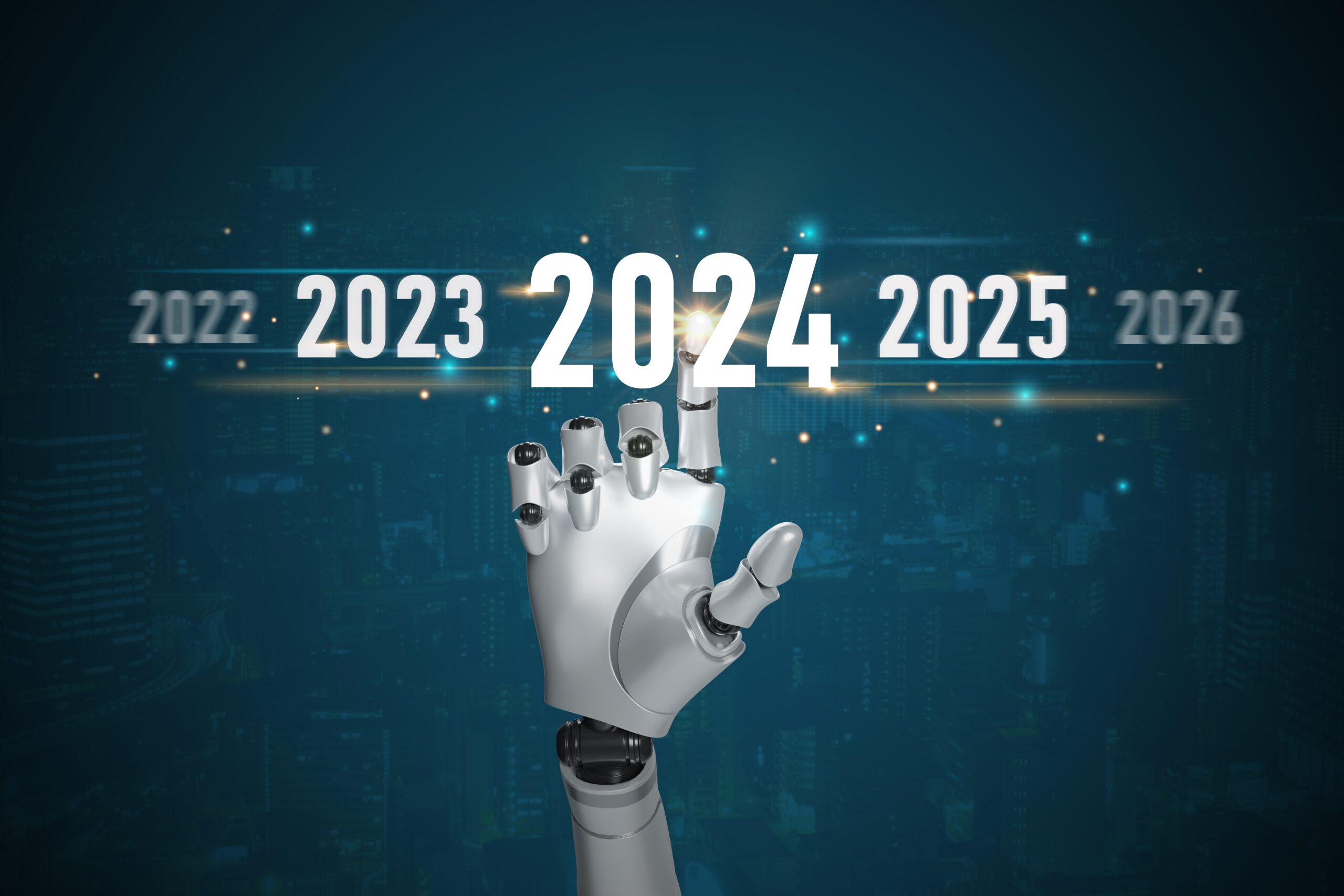Artificial intelligence (AI) has ushered in a new era of technological progress. Today, the digital mind improves many areas of marketing activities and, according to forecasts, these trends will continue. We check in which areas of PR and advertising AI is particularly leading today and what are the predictions for its further expansion in the industry.
What will you learn from the article?
From the article you will learn what AI is, how it works, and how artificial intelligence is changing the PR and marketing industry. The text discusses the areas of application of AI technologies, along with the possibilities and limitations associated with their use in relation to activities related to personalization, content marketing, analysis and reporting, content search and positioning, and customer service.
- What is artificial intelligence?
- How does artificial intelligence work?
- Which areas of marketing and PR are revolutionized by AI?
- How does AI help with personalization?
- Content marketing versus artificial intelligence
- Automated analyzes and reporting
- A new quality of search and positioning
- Does AI customer service always work?
- Artificial intelligence is changing the face of marketing
What is artificial intelligence?
To answer the question about what artificial intelligence is, it is worth referring to the meaning of the words that make up this term. The word "artificial" indicates characteristics such as inauthenticity, imitation of something else, and that something is man-made.
The concept of intelligence, in turn, refers to features such as the ability to learn, reason, and adapt to changing conditions. Artificial intelligence (AI) is a human-made, non-authentic, intelligent process-mimicking technology based on logical data processing that simulates processes that are natural and specific to intelligent life forms.
How does artificial intelligence work?
AI technology works based on computer systems aimed at performing activities that require the ability to learn, adapt, process data from the external environment and natural language processing. This happens thanks to the processing of huge amounts of data using specialized algorithms that enable logical operations analogous to thinking processes.
Why is this possible? Well, primarily due to the fact that the logic that we as humans use to express thoughts through sentences is largely translatable into mathematical terminology useful for programming. Why is artificial intelligence used and improved? The idea is not only to simulate human cognitive capabilities, but also to exceed them in some aspects, such as making decisions based on huge amounts of data in a very short time, which is impossible for humans without the use of this type of tools.
Which areas of marketing and PR are revolutionized by AI?
Artificial intelligence, thanks to new tools, provides extensive opportunities for new ways of operating and perceiving the challenges facing various industries. What are the best areas for using AI in marketing and PR? First of all, these are: personalization, content marketing, analysis and reporting, search, positioning, and customer service.
The statistics speak for themselves. Currently, 84% enterprises consider the implementation of AI a priority [source: https://techjury.net/blog/ai-statistics?ref=marketsplash.com]. Not without reason. AI-based marketing can bring productivity increases of up to 35% and savings of up to 30% [source: https://www.accenture.com/us-en/insights/artificial-intelligence-summary-index]. What advertising spaces are currently being most revolutionized by the digital mind? Here are 5 areas in which artificial intelligence supports marketing and PR activities.

How does AI help with personalization?
Discovering an individual path to reach the customer, taking into account their preferences and needs as much as possible, is in fact the key to the brand's success. Hence, an extremely important benefit of using AI in marketing is the strengthening of personalization. The digital mind helps segment audiences based on their behavior or demographics. It allows you to predict their behavior and prepare content and offers that meet their expectations, which is the basis for purchasing decisions, successively expanding the audience and building brand loyalty. Artificial intelligence is a valuable ally in this regard. Why?
It can increase the efficiency of existing activities thanks to machine learning that helps understand and predict customer needs. Thanks to appropriate algorithms, it is possible to systematically monitor user behavior in terms of purchase history, activity in social media and on websites. What is the biggest opportunity in AI personalization? First of all, thanks to the constant processing of huge amounts of data, it is possible to detect hidden patterns of behavior of various groups of users. This knowledge can help to improve the quality of communication.
Limitations in the field of personalization using AI relate to the controversies and dilemmas surrounding data collection. Technology should not interfere excessively and without users' consent with their right to privacy and to control the flow of information about themselves. Therefore, you should always ensure that users retain the right to decide on access to information about themselves.
Content marketing versus artificial intelligence
AI tools are widely used today in... content marketing:
- generate texts that can serve as inspiration and a basis for further work of copywriters;
- analyze trends and propose keywords based on them;
- help plan content on social media;
- automate the content distribution process through various communication channels;
- support the process of preparing and sending personalized messages as part of email marketing;
- artificial intelligence helps optimize content for SEO.
It is worth remembering that although AI technology is a very helpful tool supporting content marketing, it has limitations in terms of text generation. Its effectiveness depends on the correctness and advancement of the algorithms on which it is based. The generated texts may contain both factual and stylistic errors, and the information presented will not be original.
Automated analyzes and reporting
Thanks to artificial intelligence, marketers have access to tools that precisely analyze large data sets and prepare advanced reports, which provides specific support in planning and implementing advertising strategies, relieves employees and increases the effectiveness of advertising activities.
Automation of these processes is especially applicable to researching the target group, and in-depth knowledge of it is a condition for the effectiveness of promotional activities. AI tools also allow for ongoing verification of campaign effects and adaptation of subsequent activities to its results.

When using AI in the context of analysis, you should remember about the limitations that may result from how the databases were created. Additionally, not all programs specialize in every type of data. Therefore, before choosing a tool, it is worth familiarizing yourself with the available options. The problem is that operating some programs requires at least basic knowledge of machine learning.
A new quality of search and positioning
AI also brings a new quality in positioning and improves the efficiency and accuracy of searches. Neural matching, natural language processing, search personalization, Google Assistant, navigation, improving website auditing for SEO, assistance with technical SEO and Google Analytics. These are just some examples of the use of this technology. When using various tools, we must not forget that their operation is also susceptible to errors. AI technologies are still under development and are not reliable.
Does AI customer service always work?
The role of AI in customer service is also strong. Chatbots answer consumer questions quickly and precisely, and advanced tools allow you to identify recipients' expectations and meet them. The digital mind also relieves employees of routine, repetitive activities, so they can focus on more complex tasks. It also provides them with tips on how to serve customers effectively.
However, it is important to remember the limitations of AI related to the unconventional use of linguistic expressions and phrases, which may sometimes mislead consumers. It is also worth constantly monitoring the accuracy of automatic foreign-language translations, which may contain incomprehensible or misleading content.
Artificial intelligence is changing the face of marketing
As we think about the future, we can look forward to further innovations in the field of artificial intelligence, as well as improvements to what it has already brought. Development is expected to continue especially in personalization and providing unique customer experiences. We are talking about extreme personalization or hyperpersonalization [source: https://www.cmswire.com/digital-marketing/the-2024-ai-roadmap-for-marketers/]. It will be possible on a scale never seen before.
AI will also bring even more advanced data analysis. Experts announce that there will also be development in the field of SEO in terms of voice searches. AI tools will be even more adept at creating content, graphics and videos, as well as optimization, predictive analysis, and ad targeting. We can also expect contact with even more capable chatbots.
There are some challenges inherent in these forecasts and developments. Companies will have to strike an even greater balance between personalization and protection of recipients' privacy, fighting for their trust. In the context of the wave of content generated by AI, it may be crucial to maintain the content at a high level so that it is authentic, valuable, unique, engaging and, above all, consistent with the communication style and the brand's mission.
Invest in the future of your brand.
We will show you how AI can revolutionize your PR strategy!
91% marketing agencies declare that they plan to use AI in their activities this year [source: https://agencyanalytics.com/blog/marketing-agency-benchmarks-management]. This will certainly impact all aspects of advertising. Especially personalization, content marketing, SEO, predictive analysis, but it will also bring ethical and legal challenges. All this will strongly determine companies' communication strategies and will focus on providing the recipient with a unique, individual experience. It is worth adapting to these realities, being up to date and consciously, but also responsibly, using the potential of artificial intelligence.


